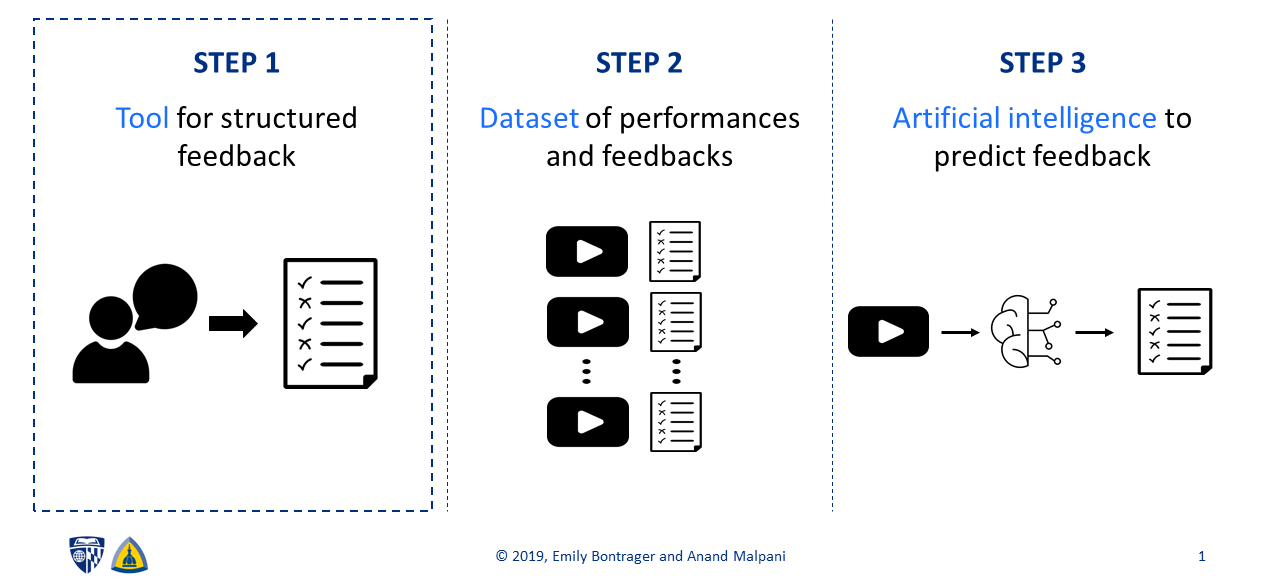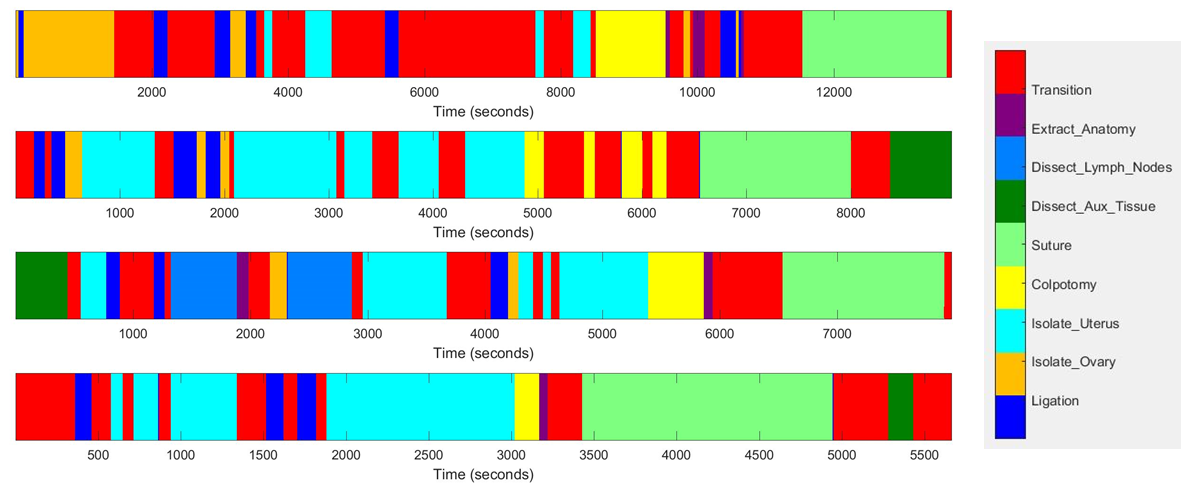
Pipeline to develop automated expert-like feedback for surgical skills training
Aims: Develop a framework that can replicate expert-like feedback for coaching surgeons learning robot-assisted needle passing skill
Summary: This projects has three phases: 1) develop a structured feedback tool based on expert consensus of feedback items during robot-assisted needle passing skill development, 2) build a machine learning-based method to map surgical performance data to structured feedback obtained from the developed tool in phase 1, and 3) study the effect of such automated expert-like feedback on surgical skill acquisition.
Funding: JHU Science of Learning Institute Research Grant 2017
People: Anand Malpani, S. Swaroop Vedula, Gina Adrales, Bethany Sacks, Christina Harnett, Linda Tsantis, Lieny Jeon, Gregory D. Hager, Emily Bontrager, Michael Peven, Alexandra Berges
Publications:
- Bontrager E, Vedula SS, Peven M, Harnett C, Jeon L, Tsantis L, Sacks BC, Adrales GL, Hager GD, Malpani A. Structuring Expert Insights for Automated Coaching of Surgical Skills. Association of Surgical Education Annual Meeting at 2019 Surgical Education Week. Chicago, IL; 2019. Podium Presentation (manuscript under preparation)
